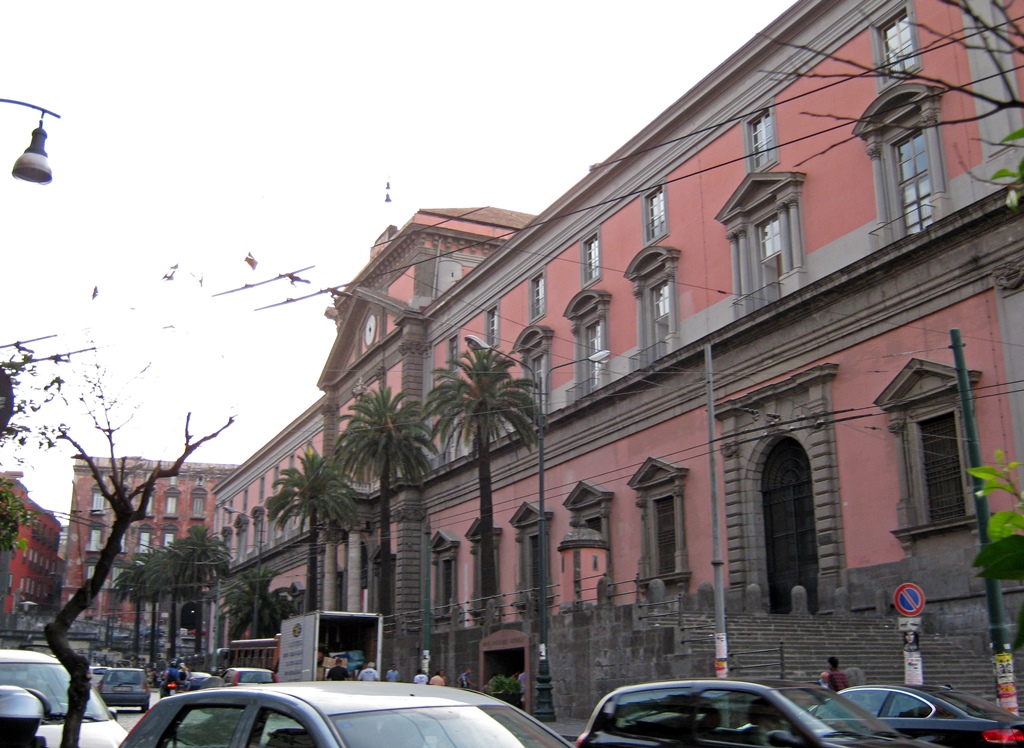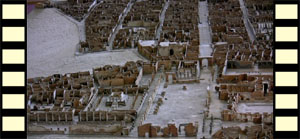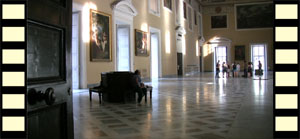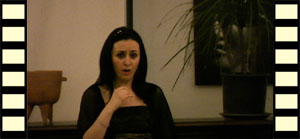National Archaeological Museum
On arriving back at the Naples train station, we reversed our course from earlier in the
day and boarded the Metro headed back toward Piazza Dante and our hotel. But finding ourselves
somewhat recharged from lunch and the relative inactivity of the train ride, we decided to
visit the National Archaeological Museum (Museo Archeologico Nazionale), found next to the
Museo Metro stop. Again we showed our ArteCards, thereby using up the last of the free
admissions to which we were entitled, and we started wandering around.
The National Archaeological Museum has an extensive collection of artifacts found throughout
Italy, though there is probably a particular focus on pieces found in Pompeii and Herculaneum
(mostly mosaics and frescoes). The museum provides the dual services of making the artifacts
more easily accessible and of protecting the ones found outdoors from the elements and from
feral creatures (mainly the human ones). In many cases, reproductions are displayed in the
places the artifacts came from. The following is a sampling of the things we found on
display:
First, some sculptures –
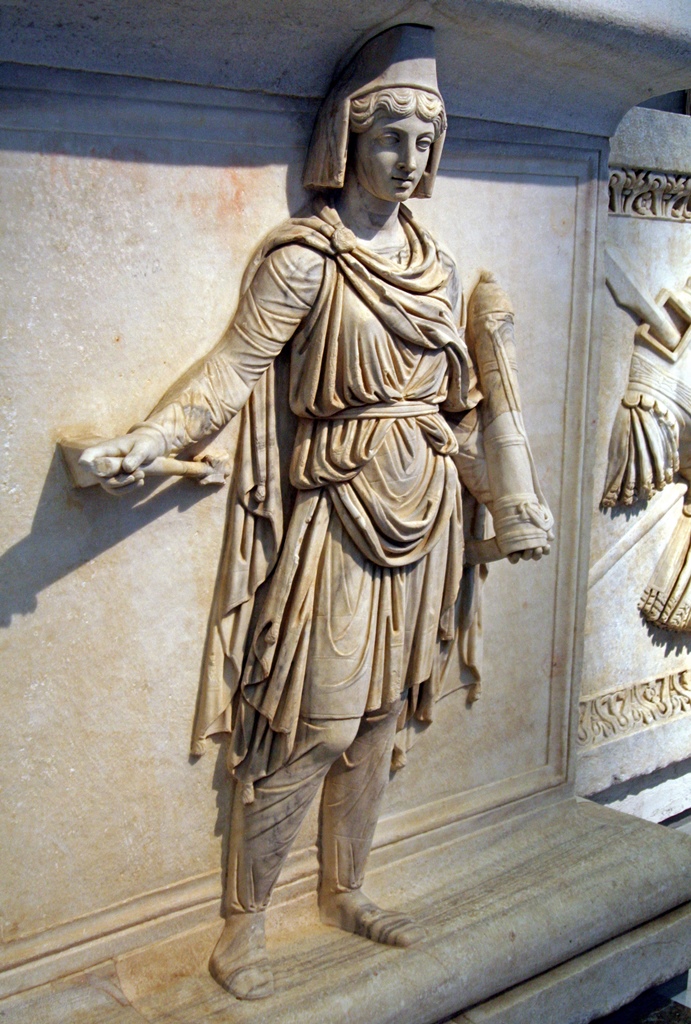
Relief from the Hadrianeum
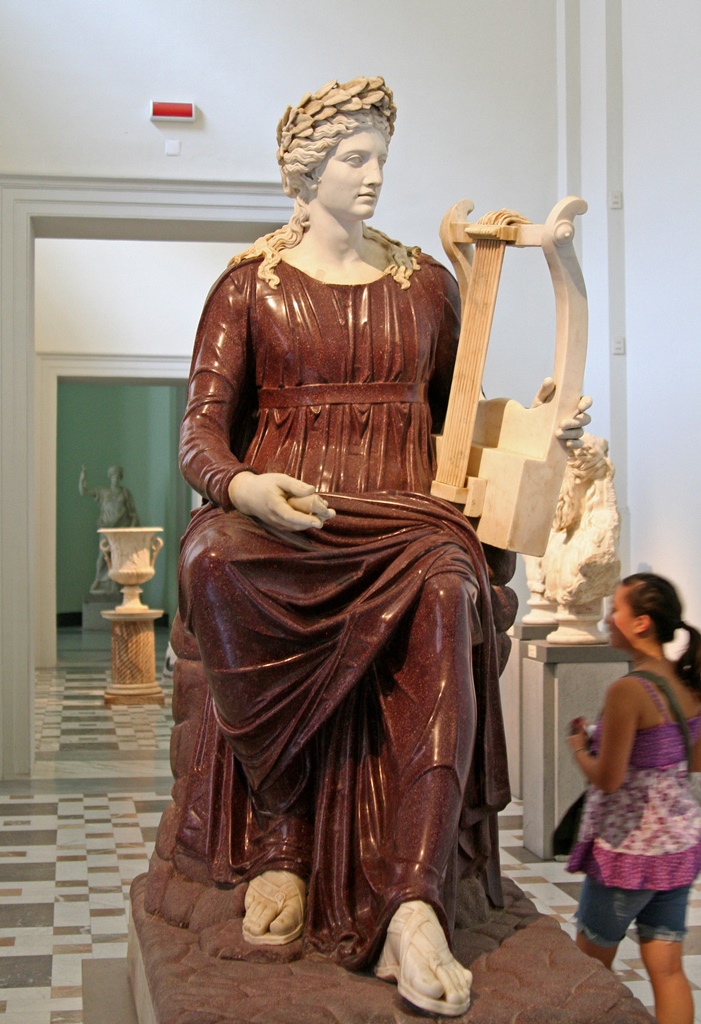
Apollo Seated with Lyre (2nd C. A.D.)
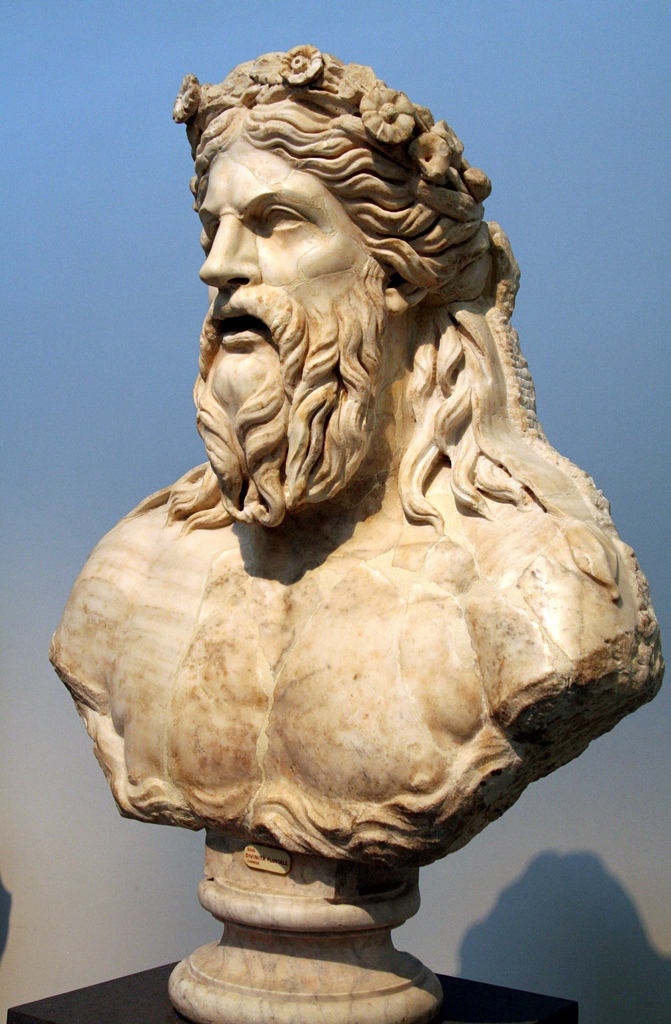
Bust of River God
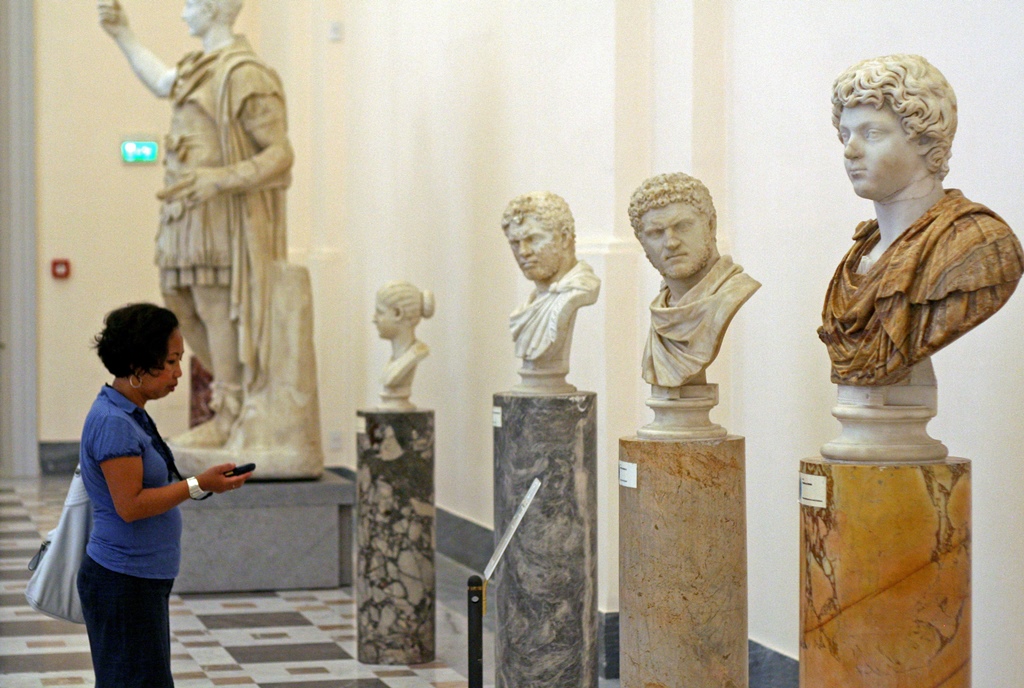
Nella with Busts
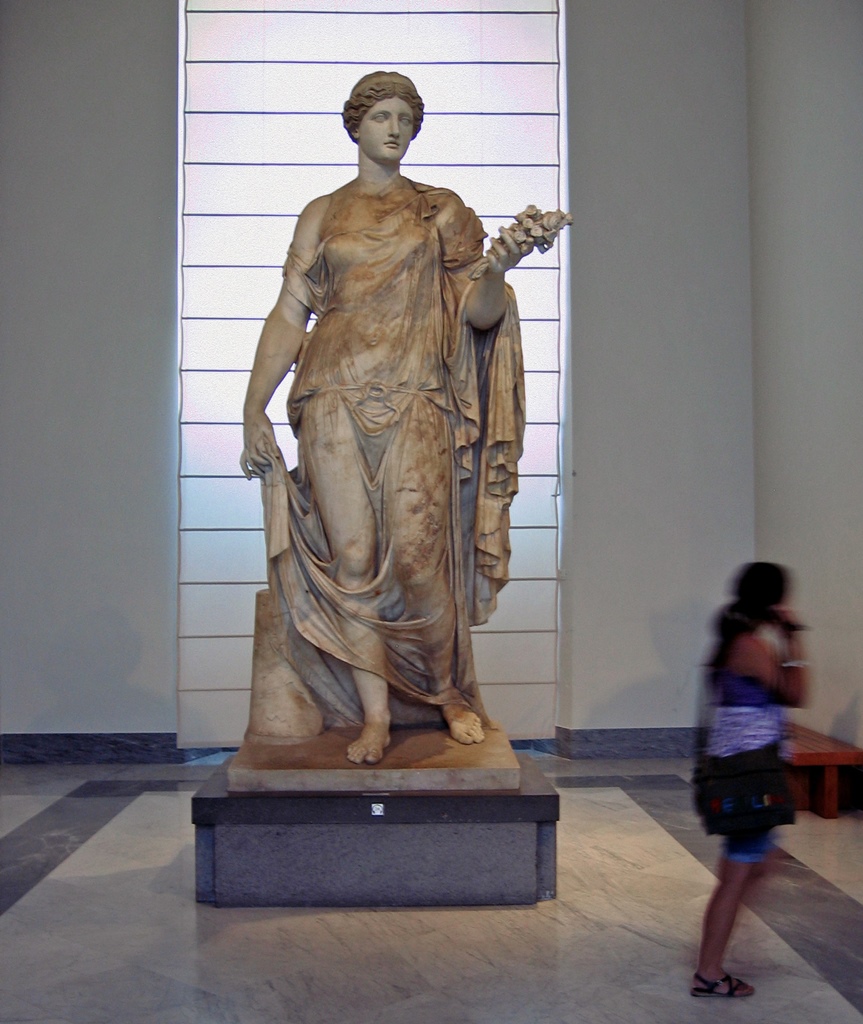
Flora Maior (2nd C. A.D.)
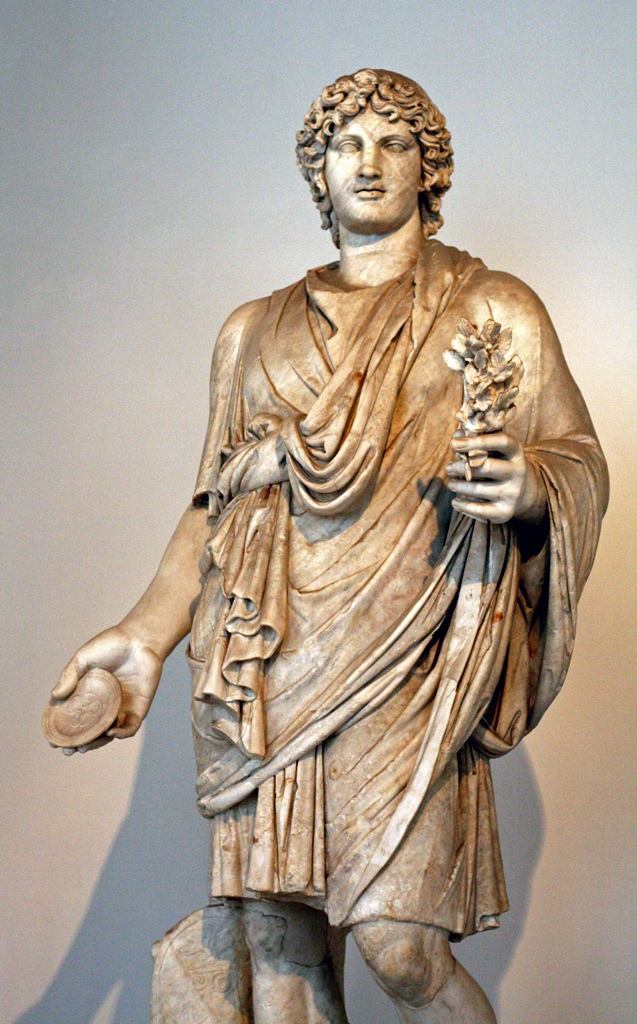
Farnese Lar, Holding Ashtray (2nd C. A.D.)
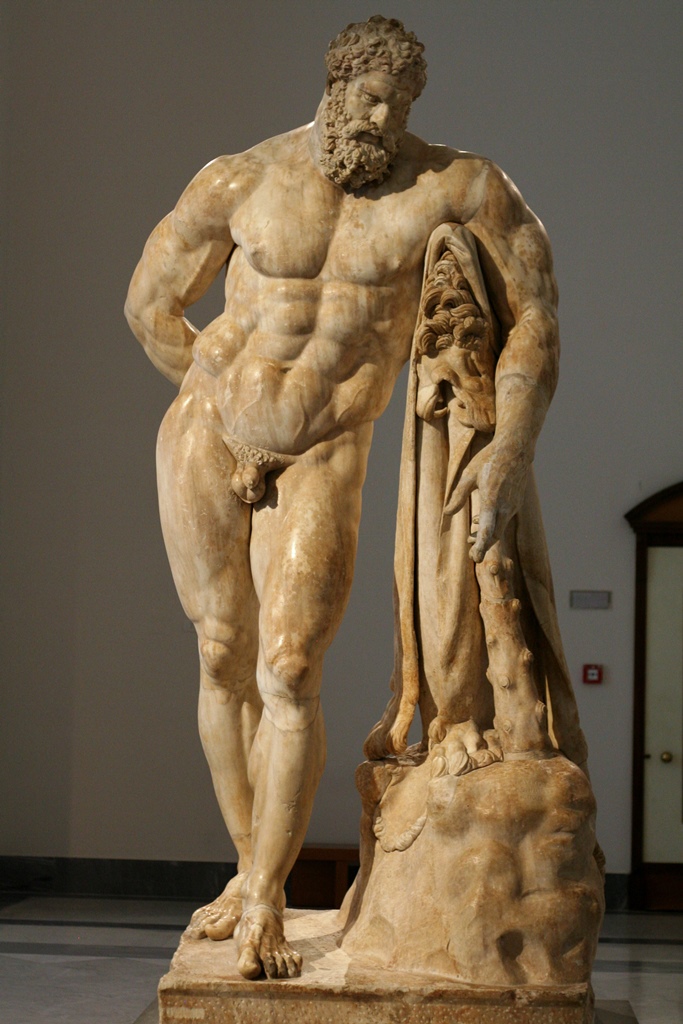
The Farnese Hercules (ca. 216 A.D.)
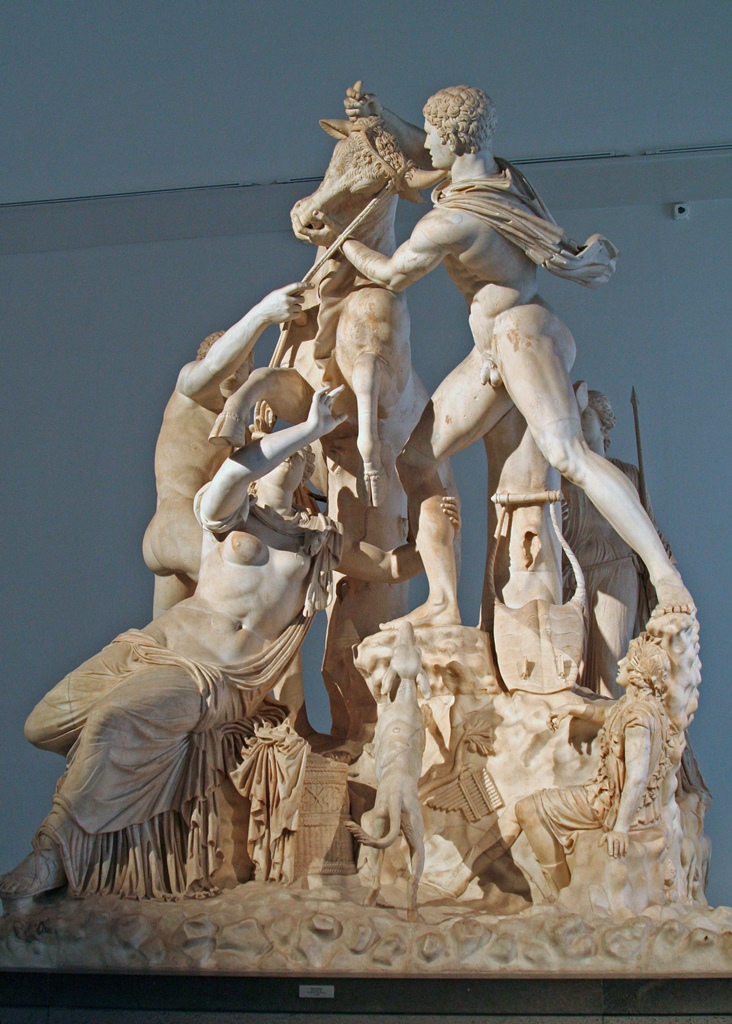
The Farnese Bull (ca. 230 A.D.)
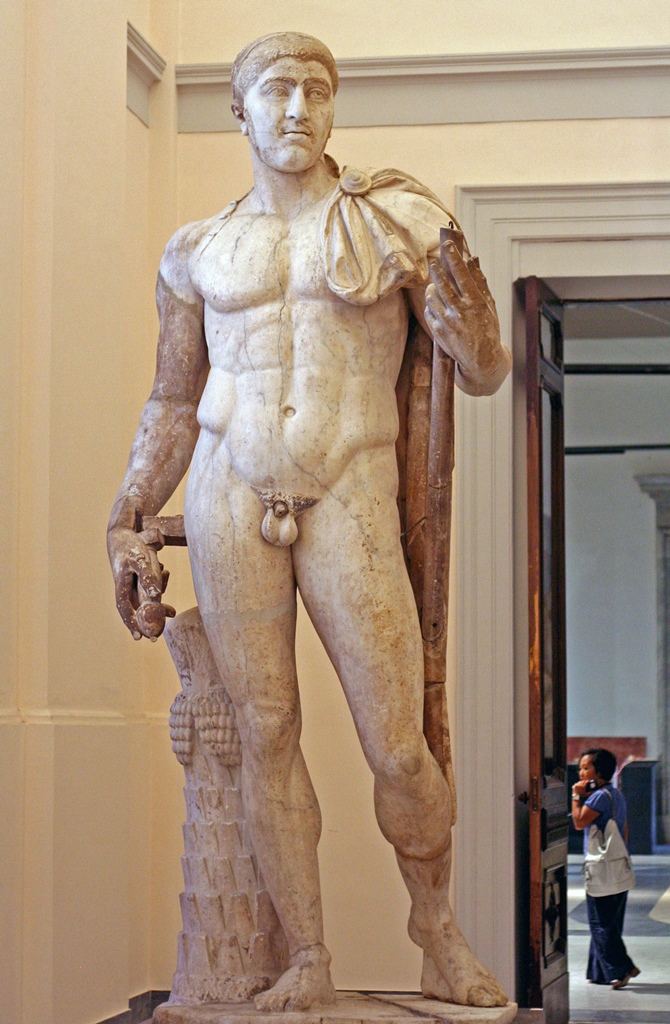
Statue of Alexander Severus (ca. 225 A.D.)
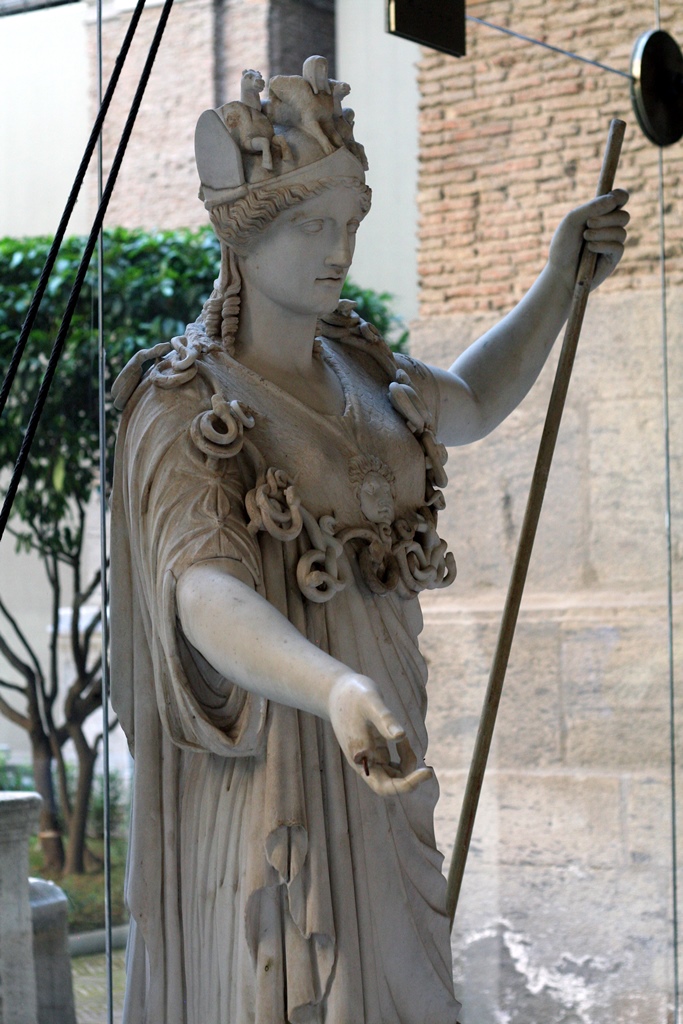
Athena with Animals on Her Head
Mosaics, mostly from Pompeii –
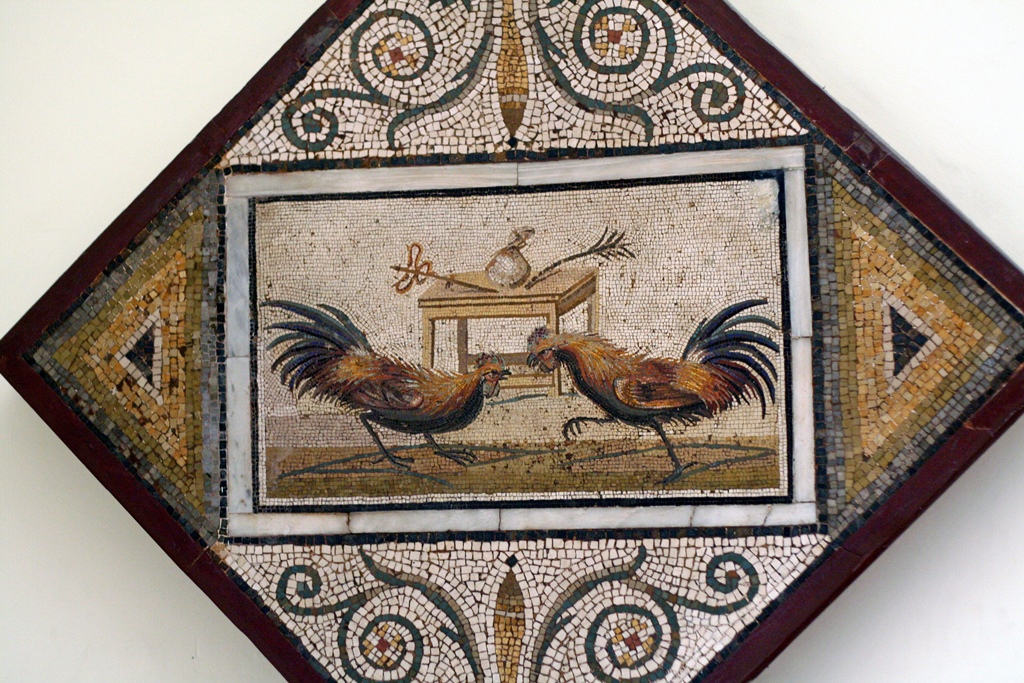
Fighting Chickens
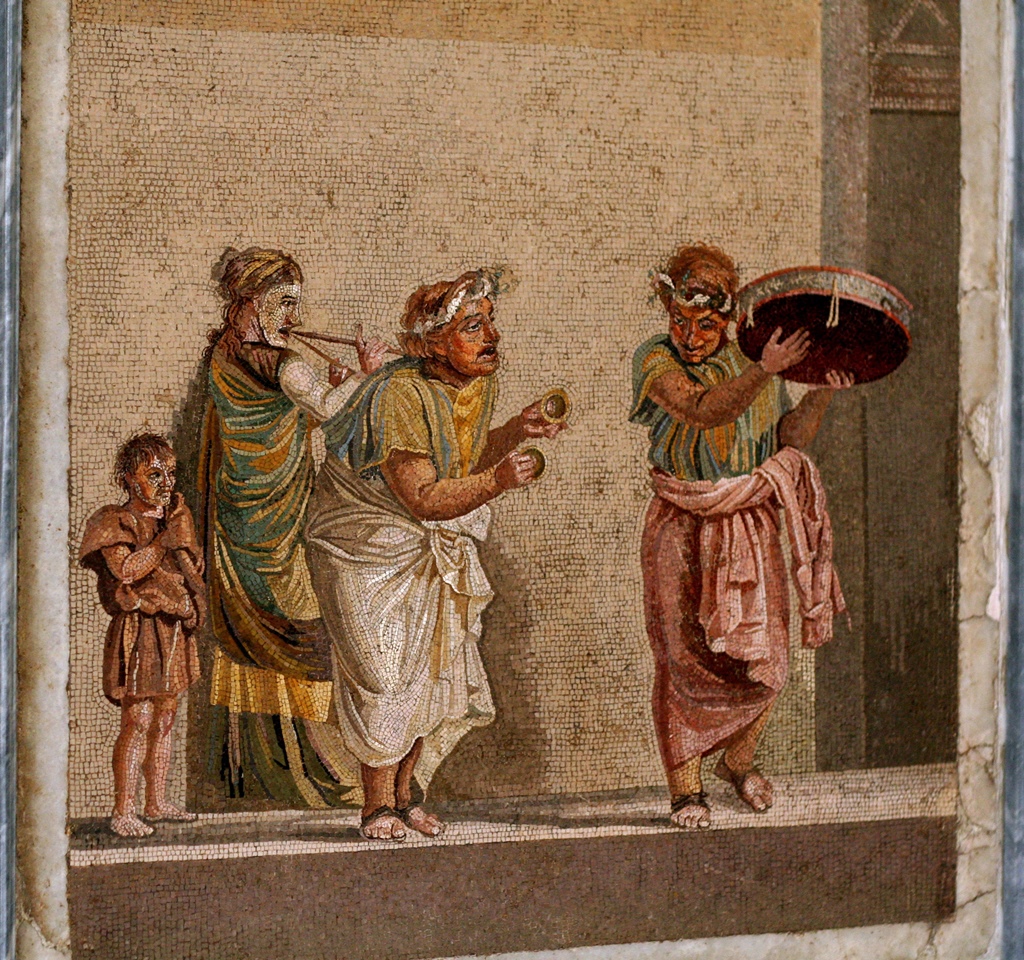
Walking Musicians, Pompeii
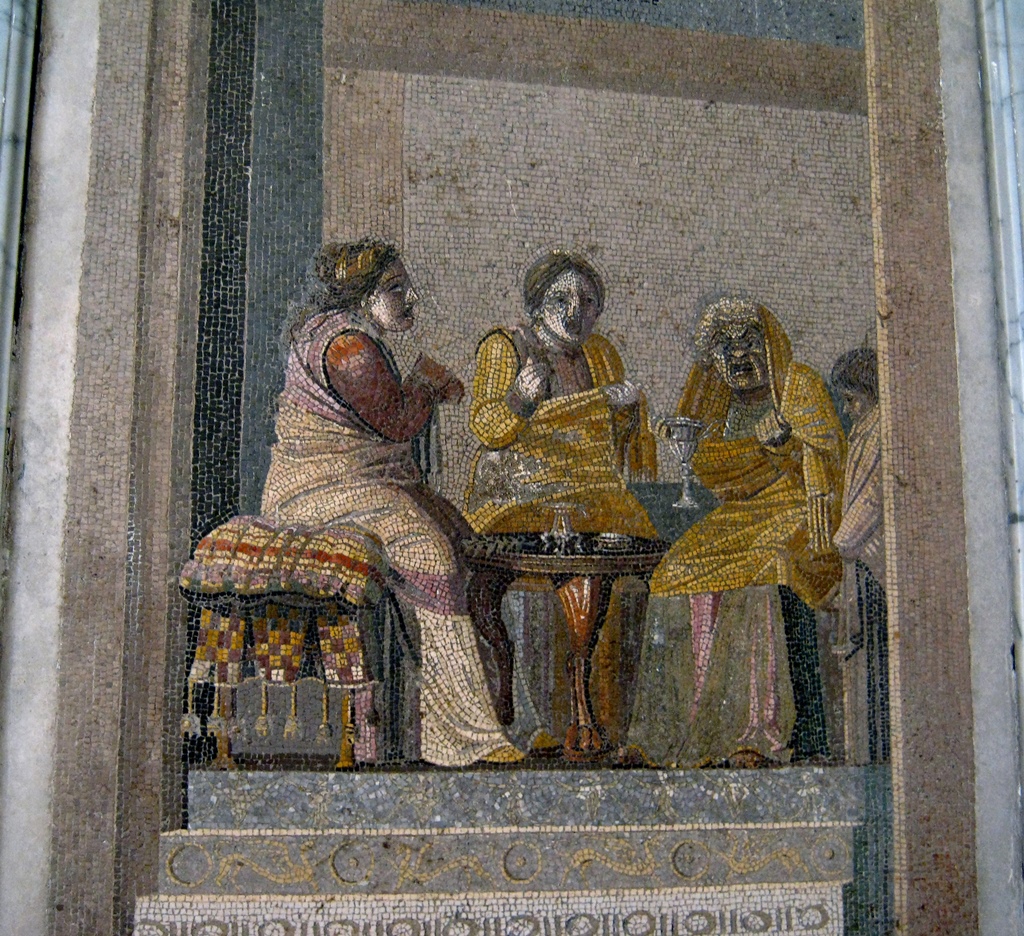
Two Women Calling on a Witch, Pompeii
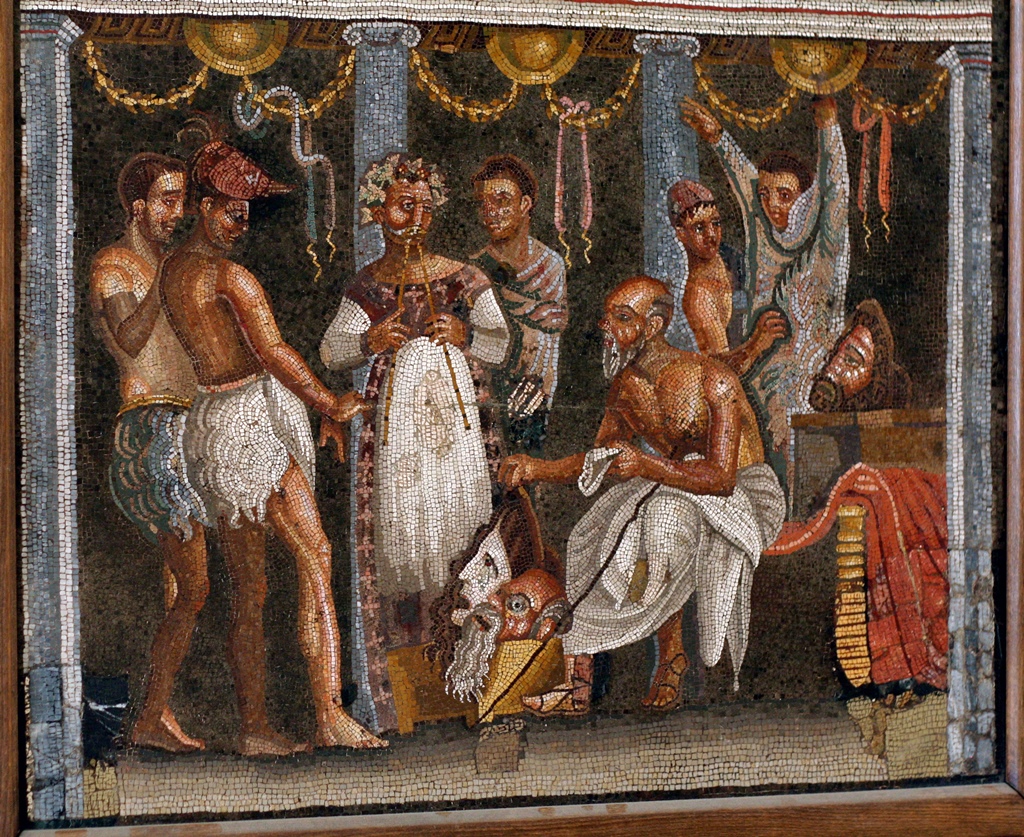
Rehearsal of a Satirical Play, Pompeii
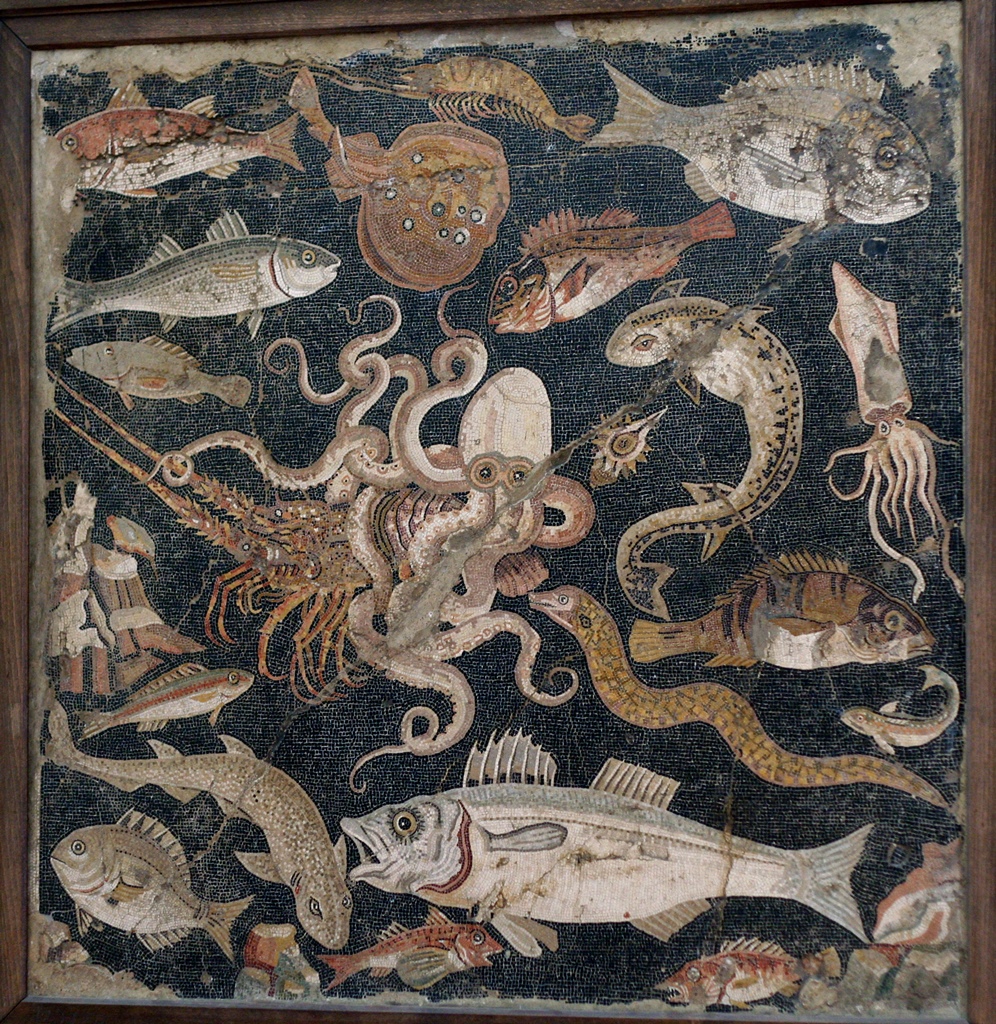
Marine Animals, Pompeii
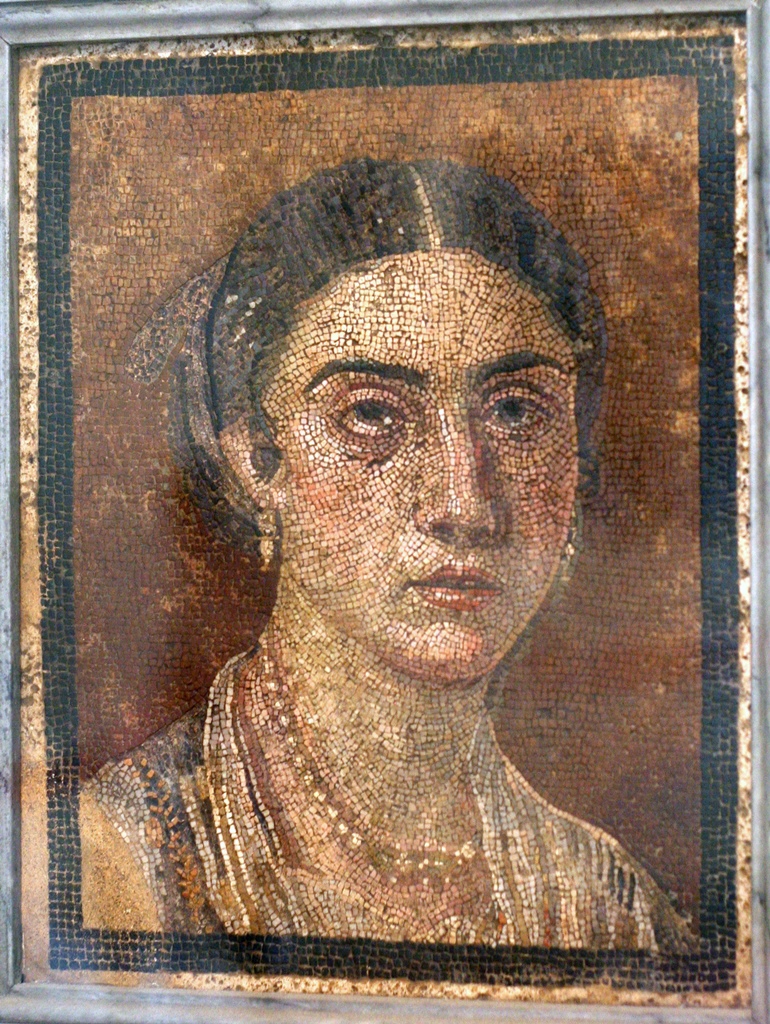
Portrait of a Pompeiian Woman
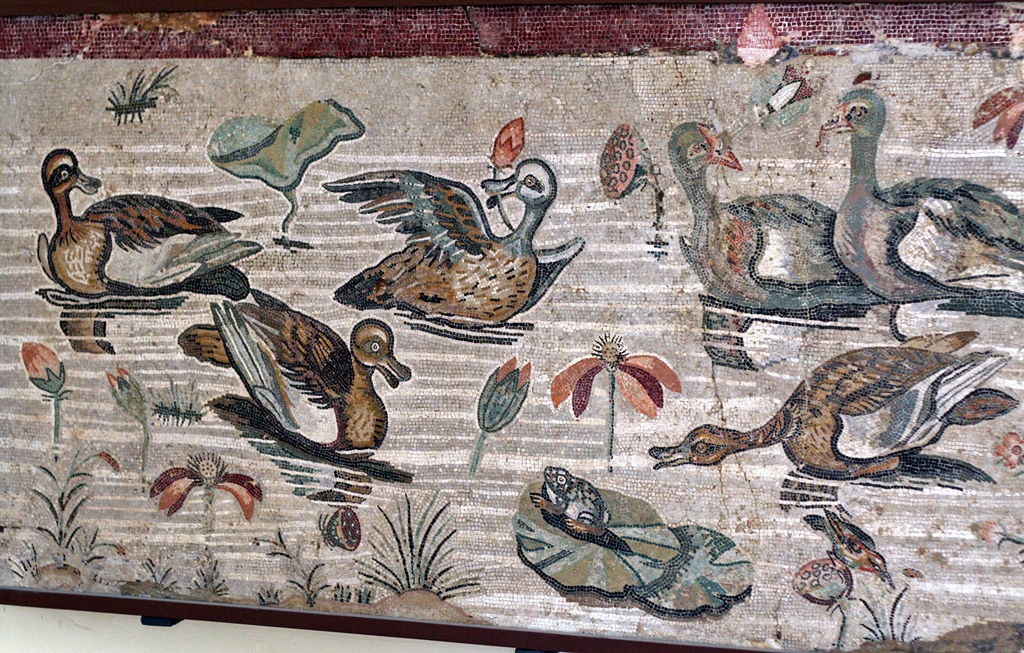
Nile Scene, Pompeii
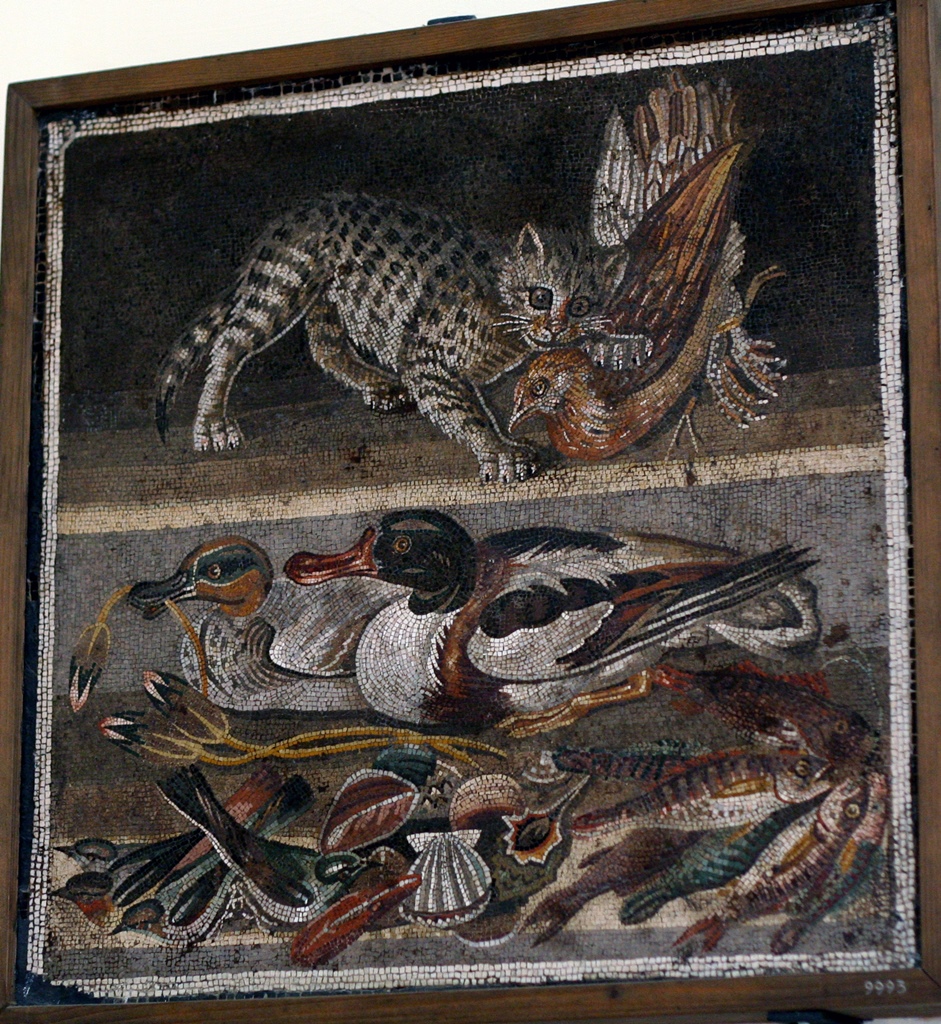
Cat with Birds and Fish, Pompeii
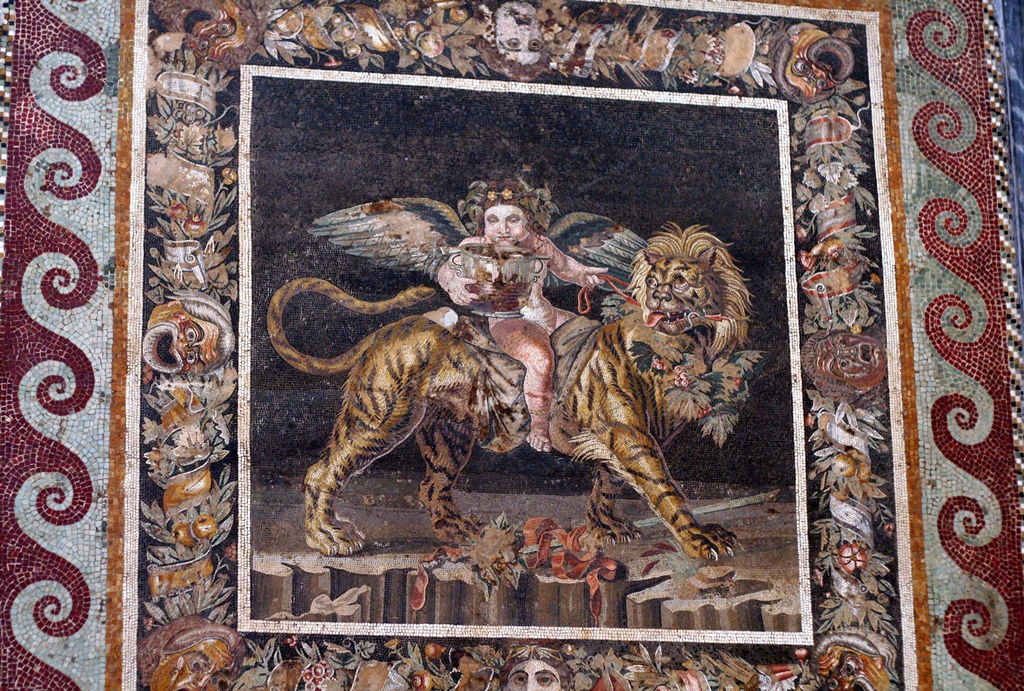
Dionysus as a Boy on a Tiger, Pompeii
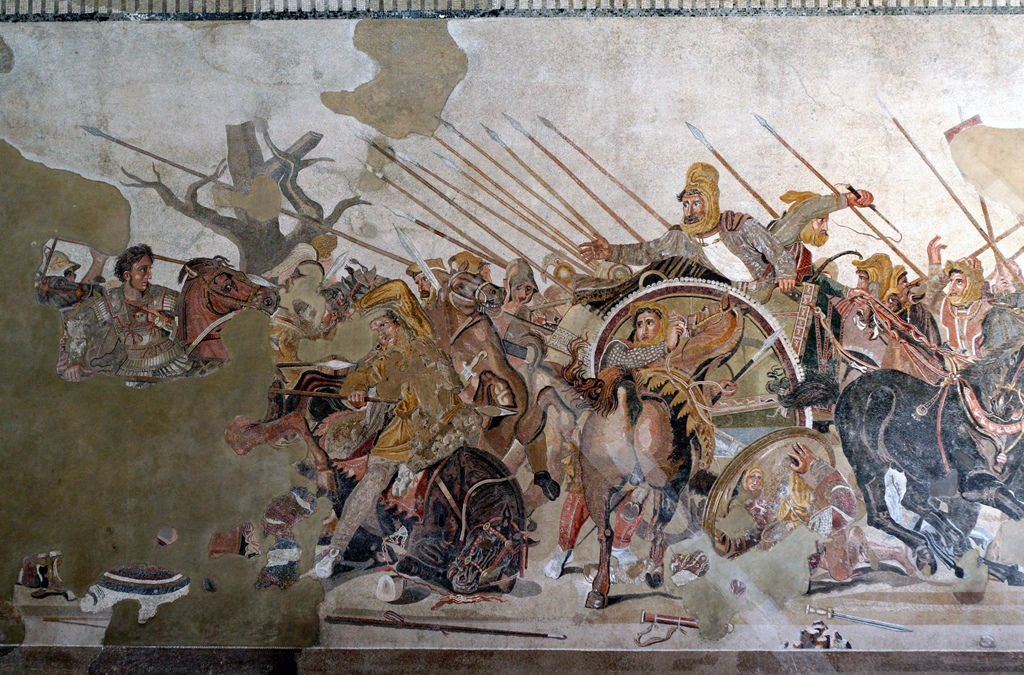
The Battle of Alexander, Pompeii
Frescoes, mainly found inside houses in Pompeii and Herculaneum –
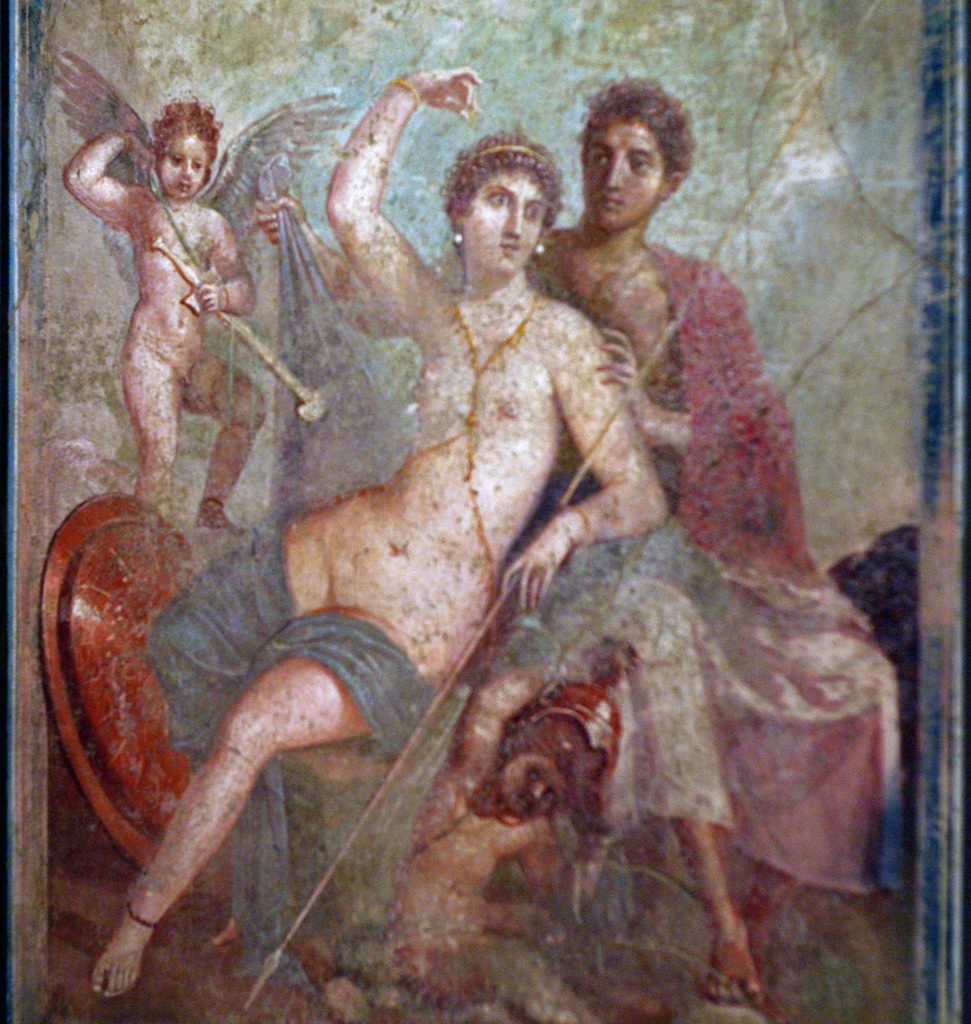
Mars and Venus, Pompeii
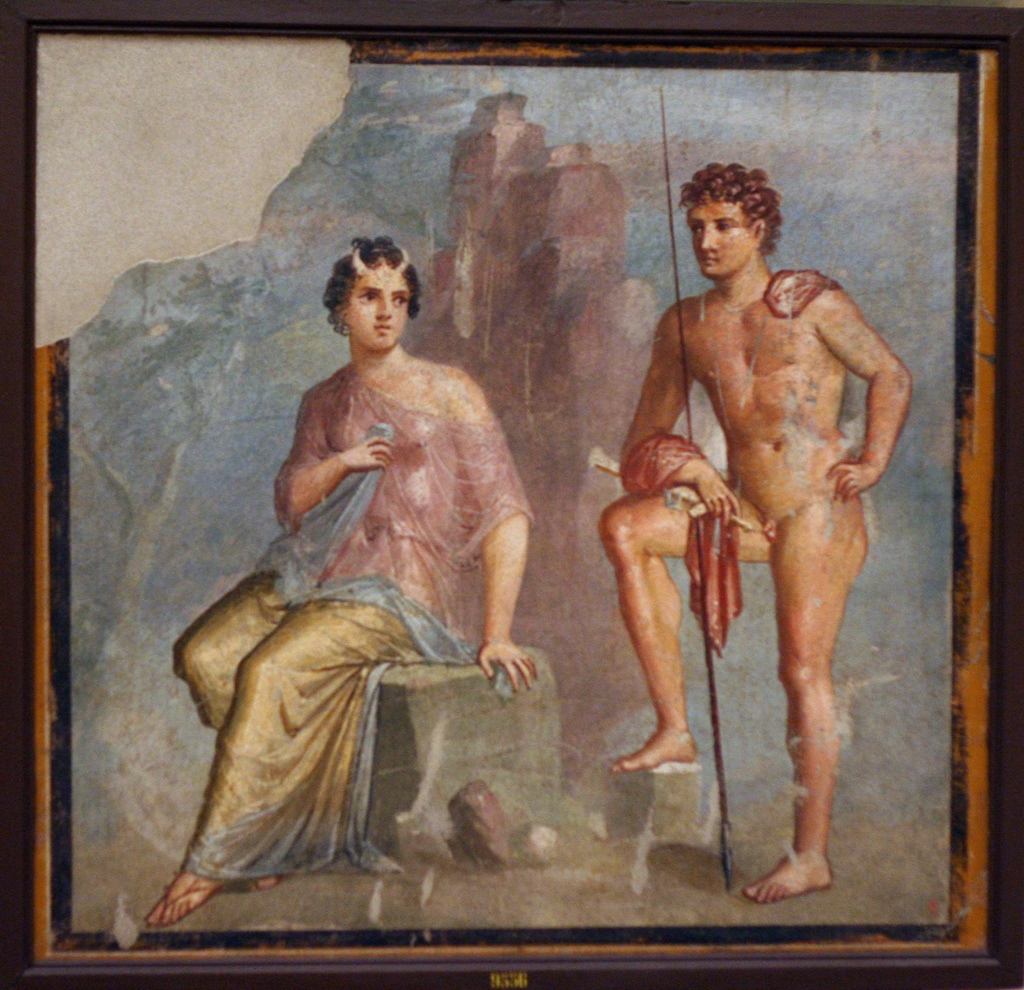
Io Guarded by Argo, Pompeii
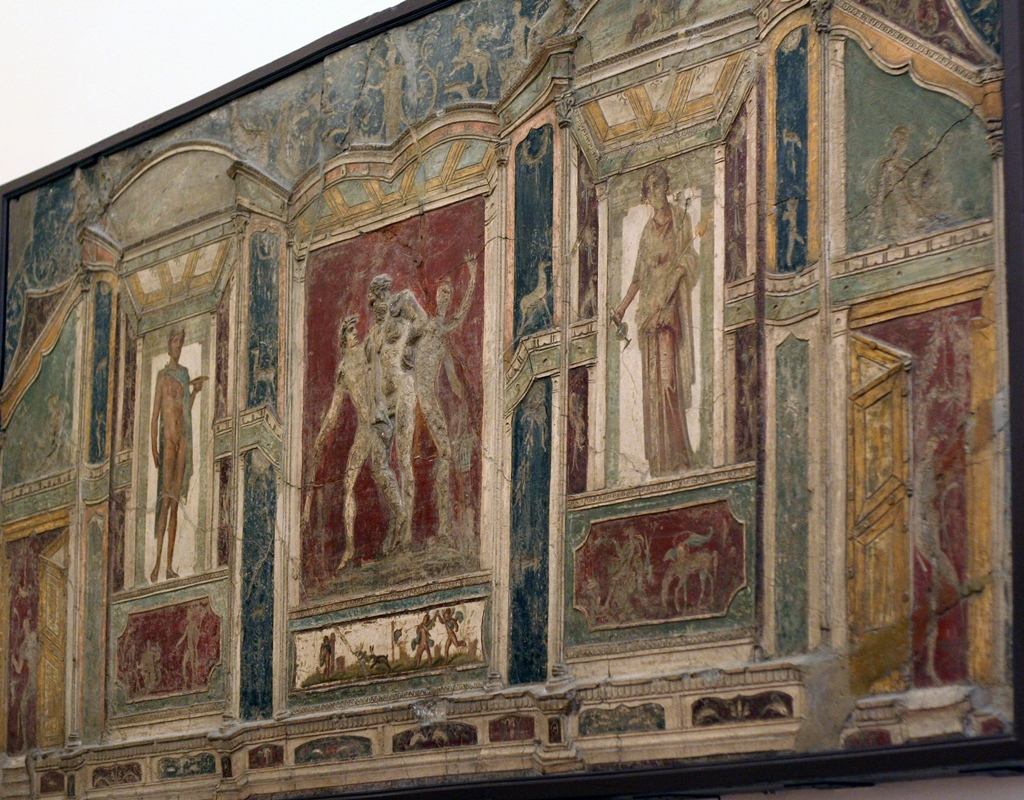
Portraits, etc.
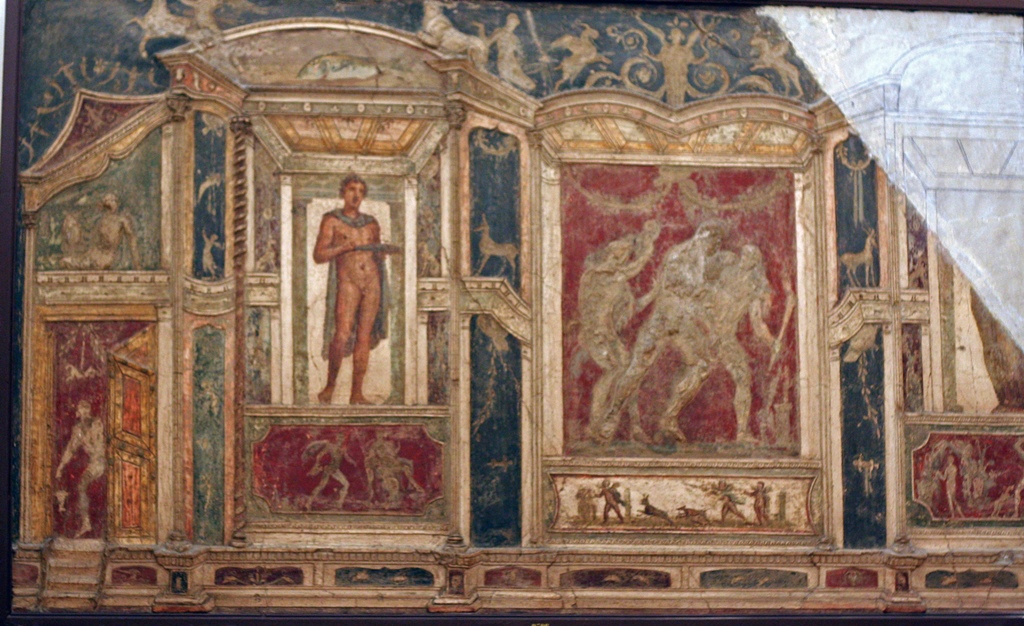
Misc. Scenes
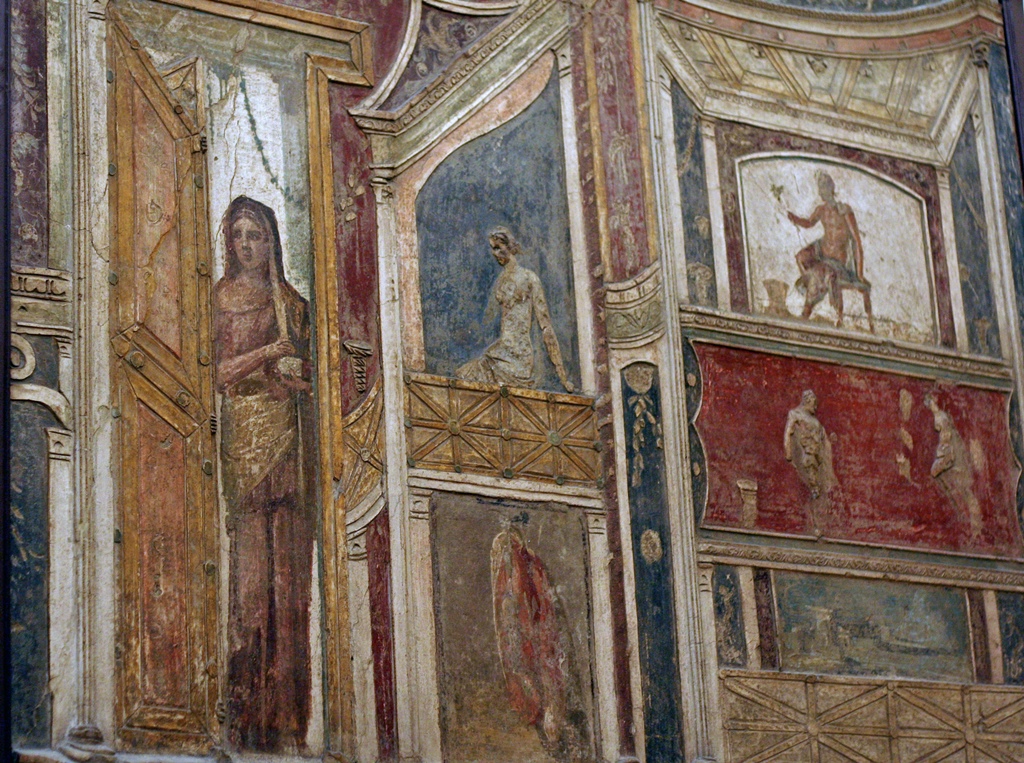
Portraits
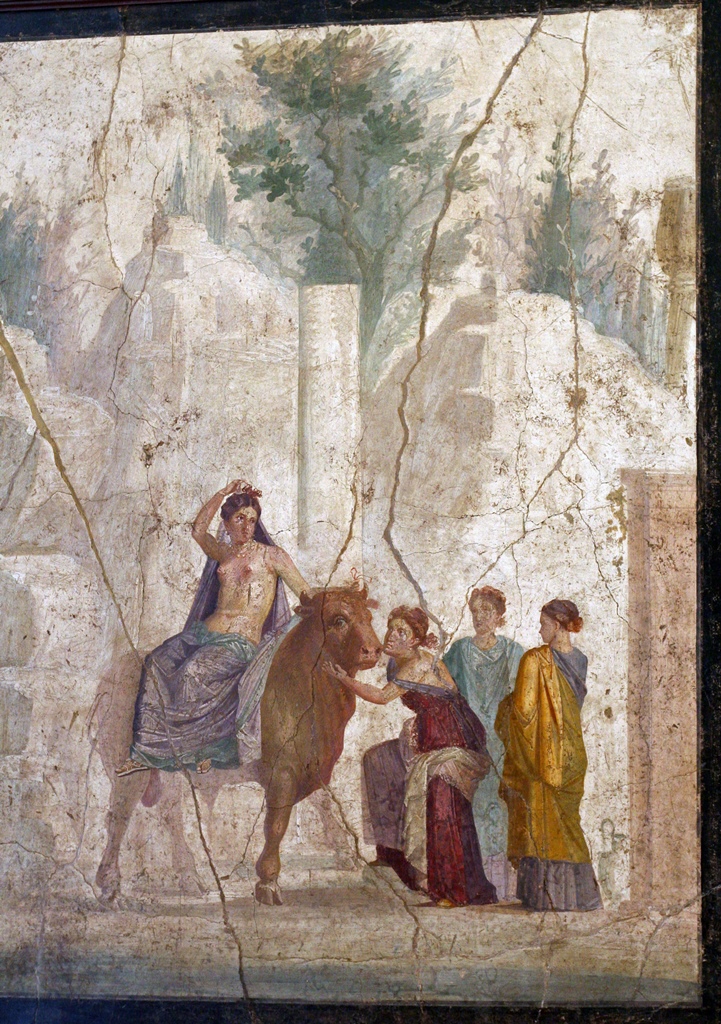
Europa Seated on a Bull, Pompeii
And a few of the many other objects –
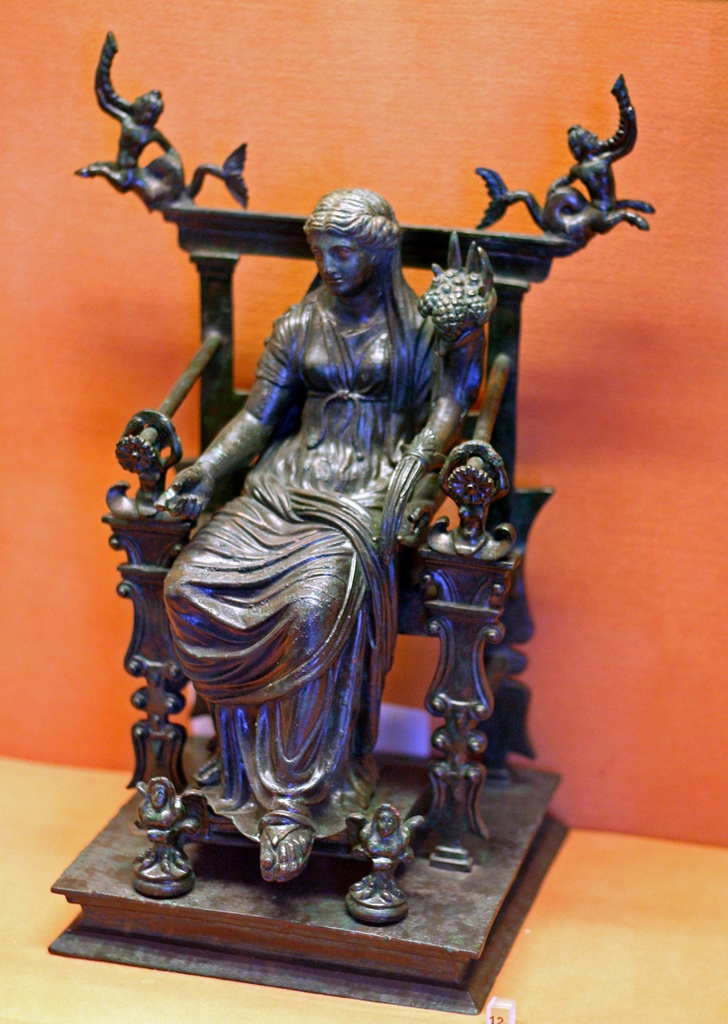
Fortuna, Pompeii
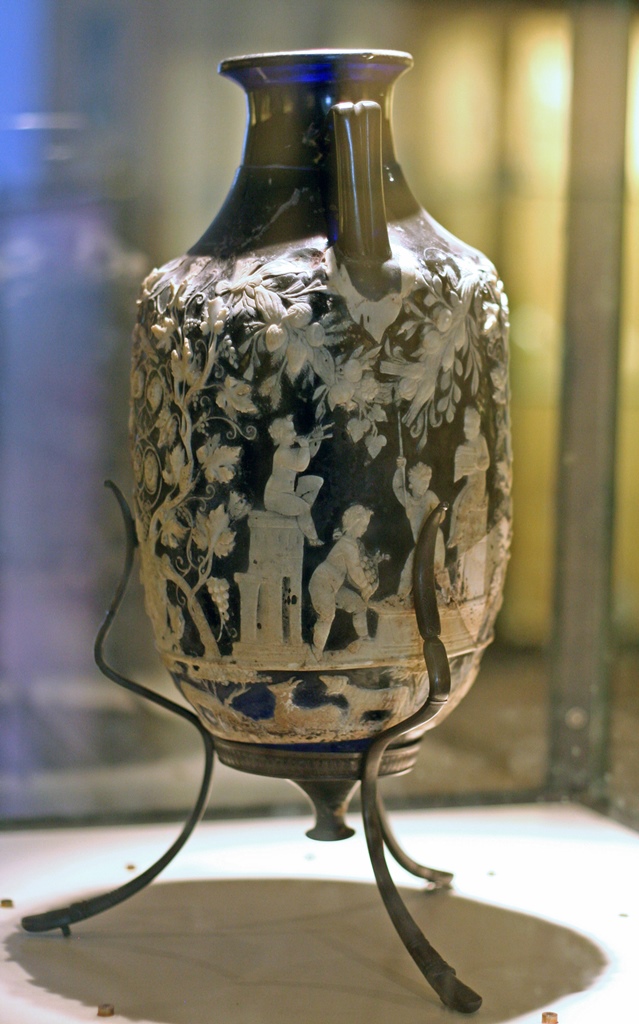
Blue Vase, Pompeii (1st C.)
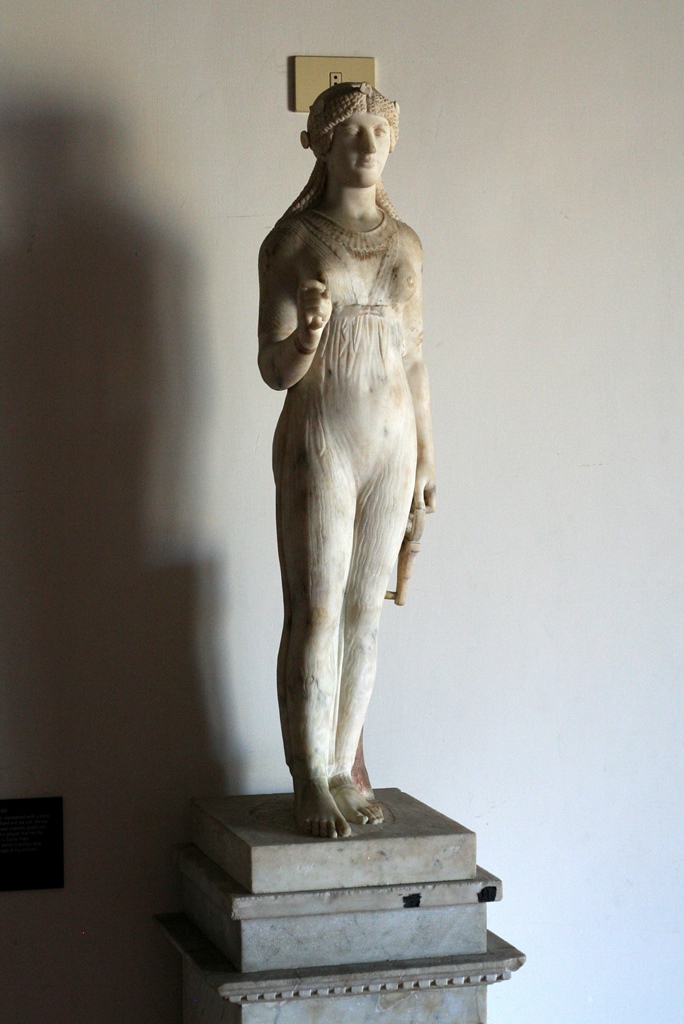
Egyptian Statue of Isis
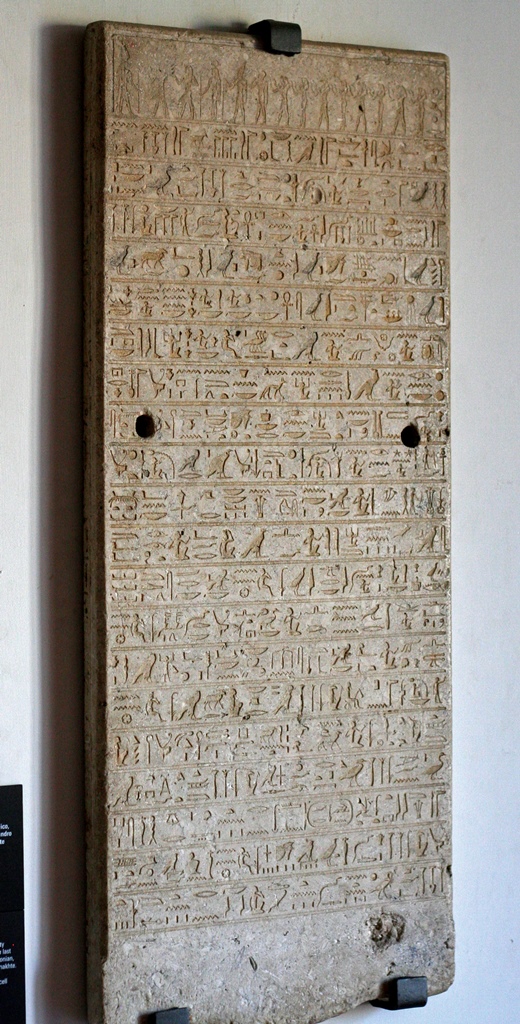
Limestone Stele (Ptolemaic Age)
There was also a large scale model of Pompeii that was created in the 19th Century. The city
hasn't changed much since then, though some additional structures have been unearthed.
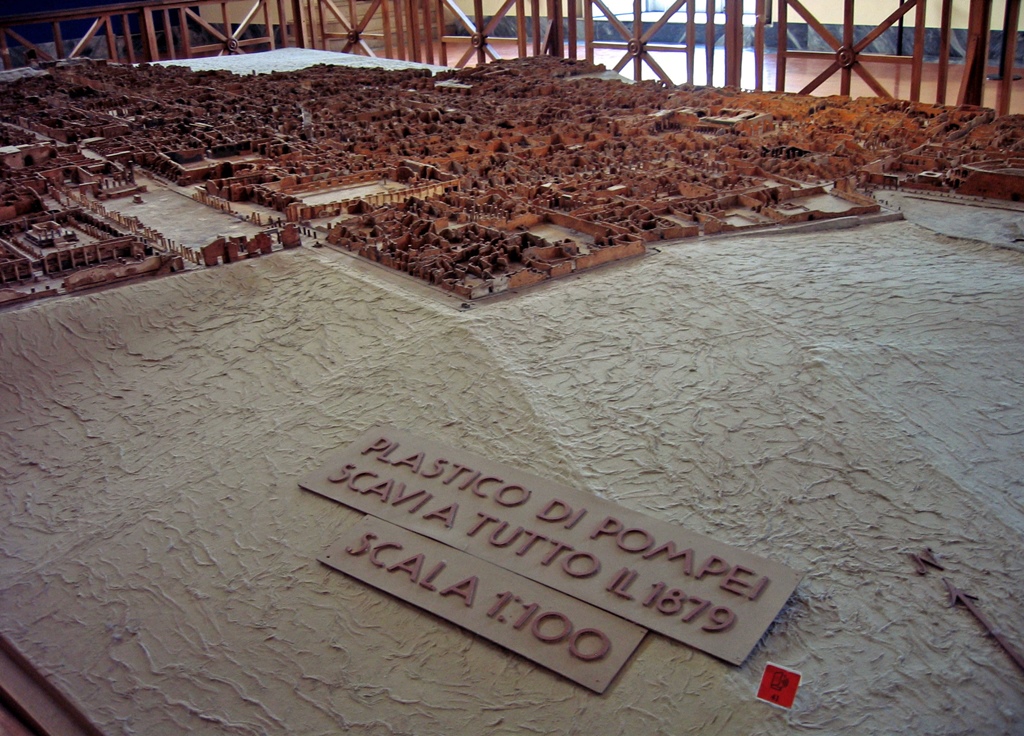
Scale Model of Pompeii
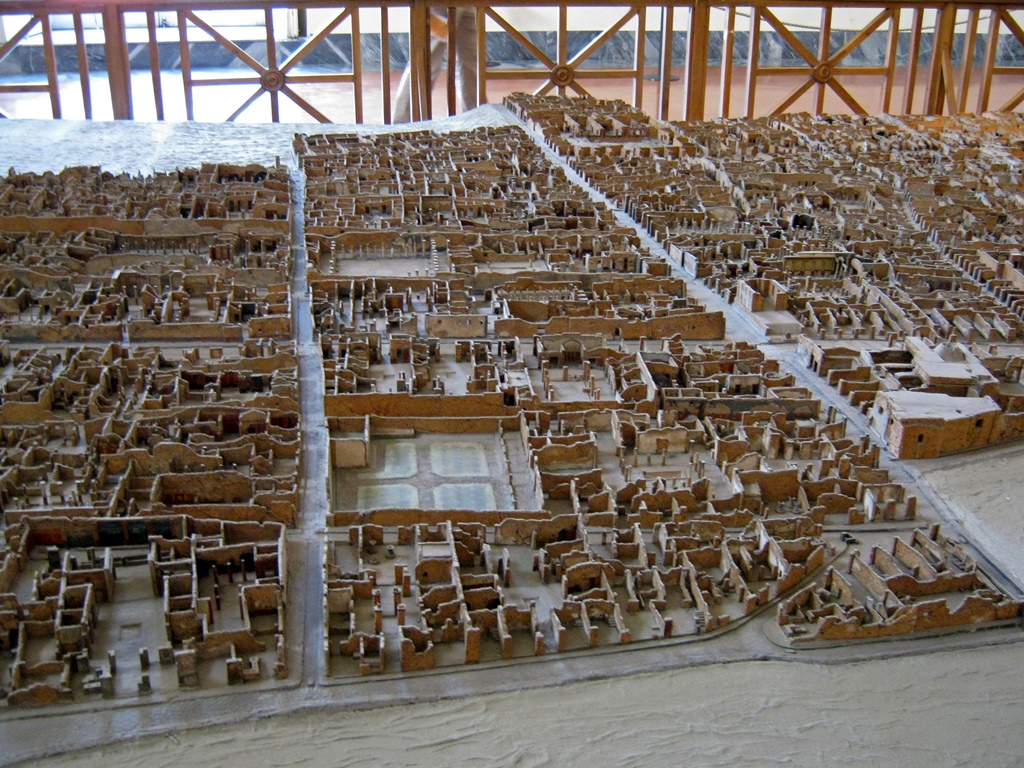
Model Overview
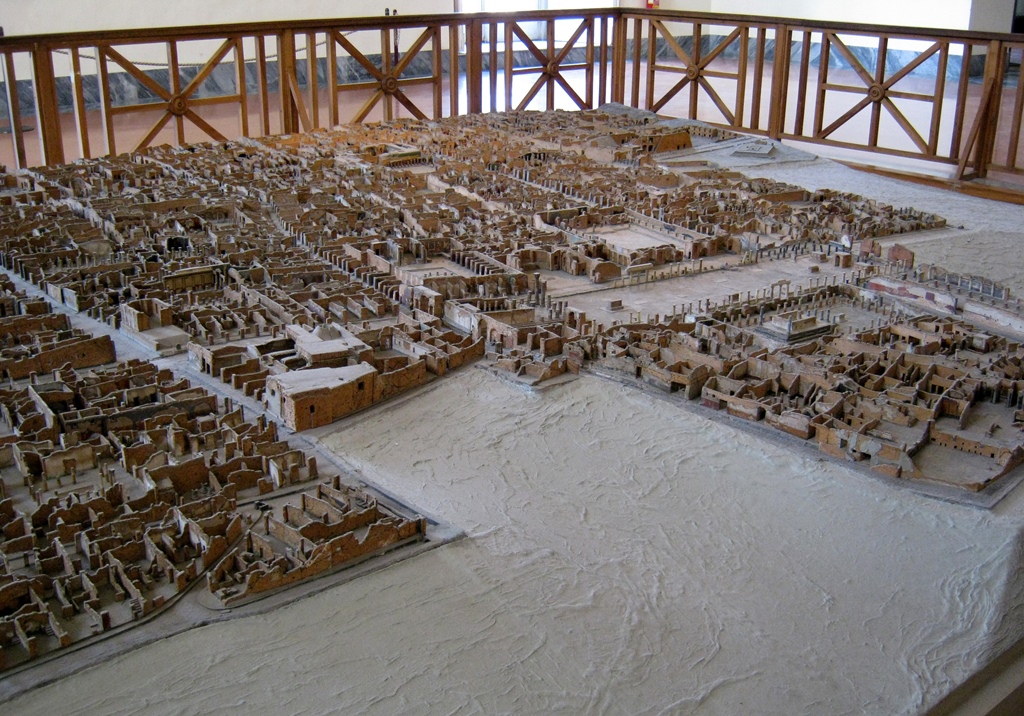
Model with Forum

Porta Marina Area (0:30)
Around the middle of the building there was an immense room, called the Meridian Room. Its
construction was started early in the 17th Century, but it was repaired and renovated and
updated until well into the 20th Century. It was once used as a library, but the books
have been moved. It is used for a variety of purposes now.
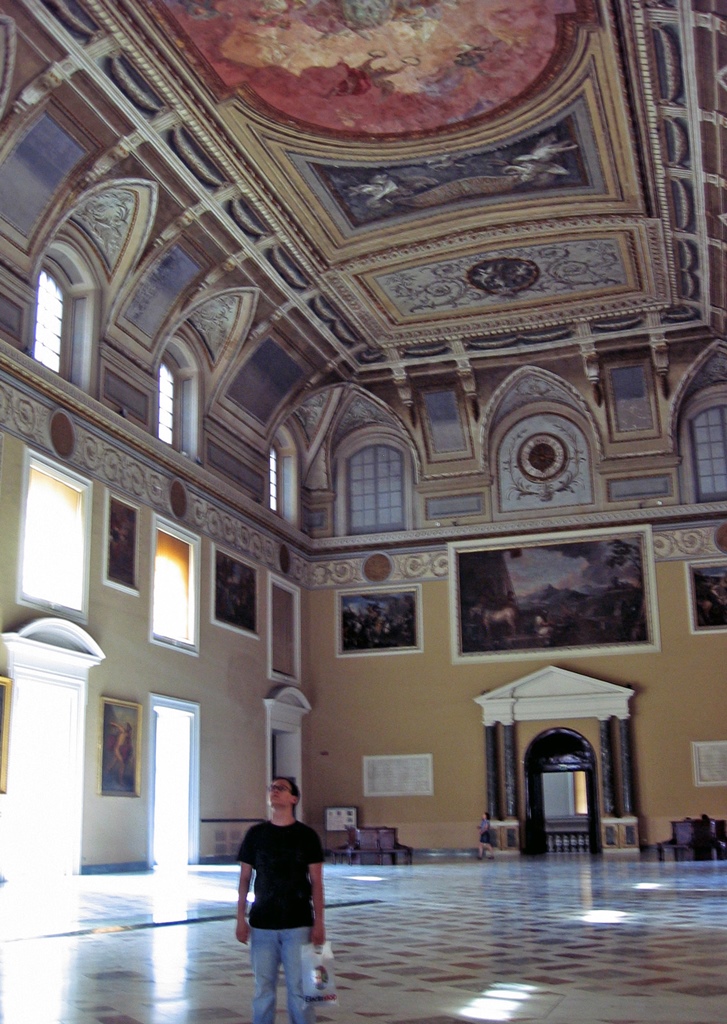
Philip in Meridian Room
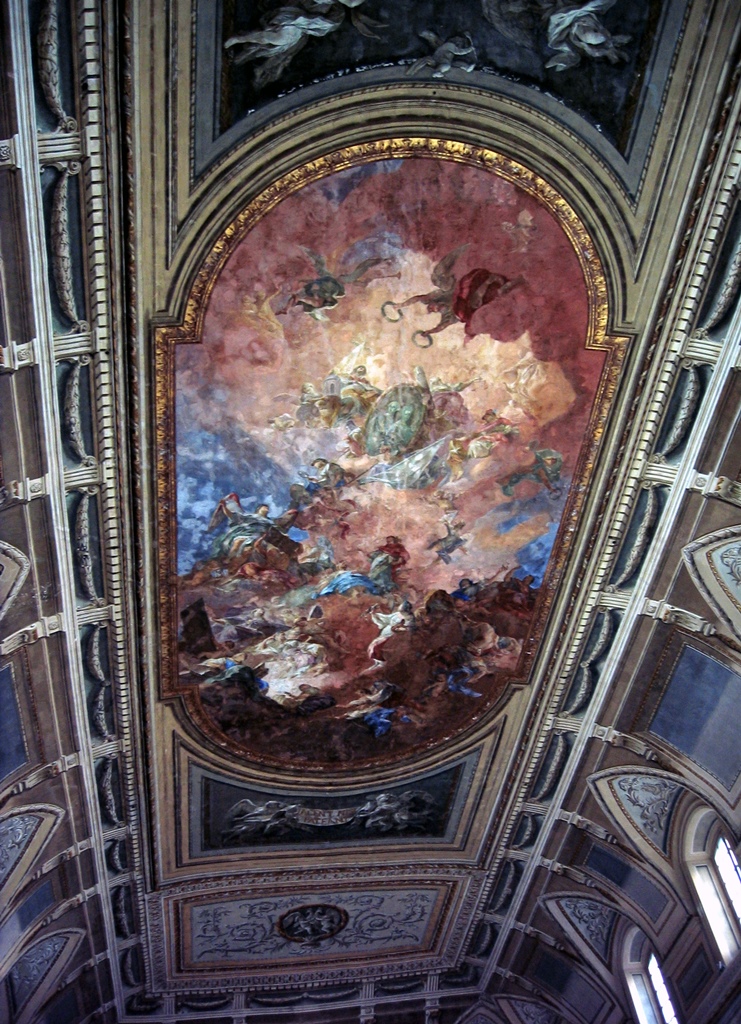
Ceiling Fresco
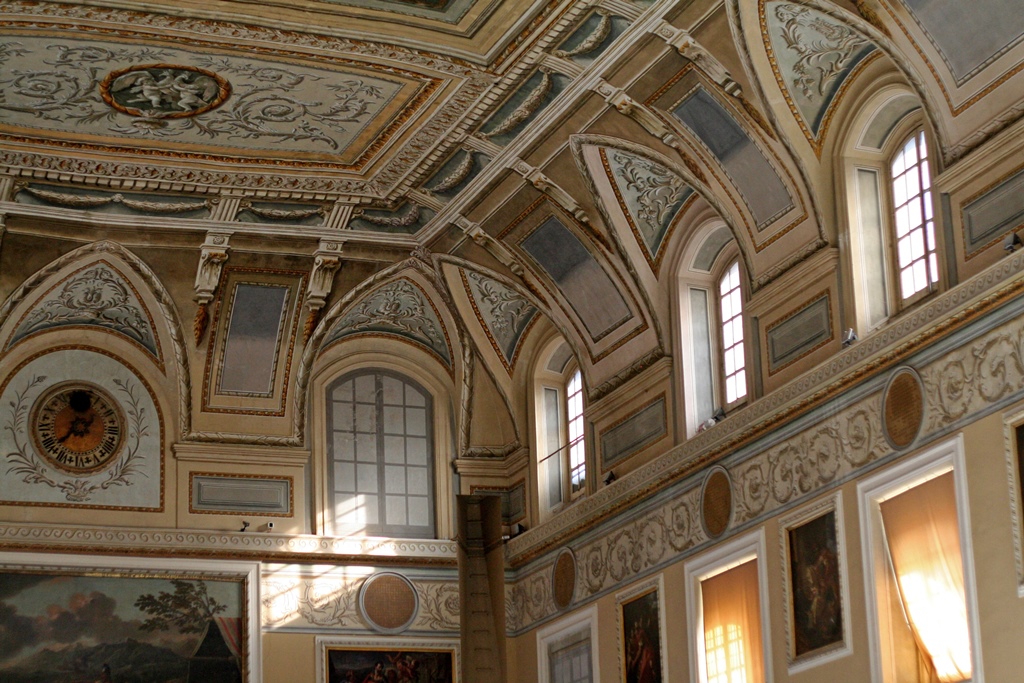
Corner of Room

Nella in Meridian Room (0:26)
To exit the museum, we needed to pass through a courtyard with some more sculpture. In one
of the side rooms, a woman was singing (rather well) in front of an audience seated in
stackable chairs.
Italian Songstress (0:24)
On another side of the courtyard we found a collection of elaborate sarcophagi.
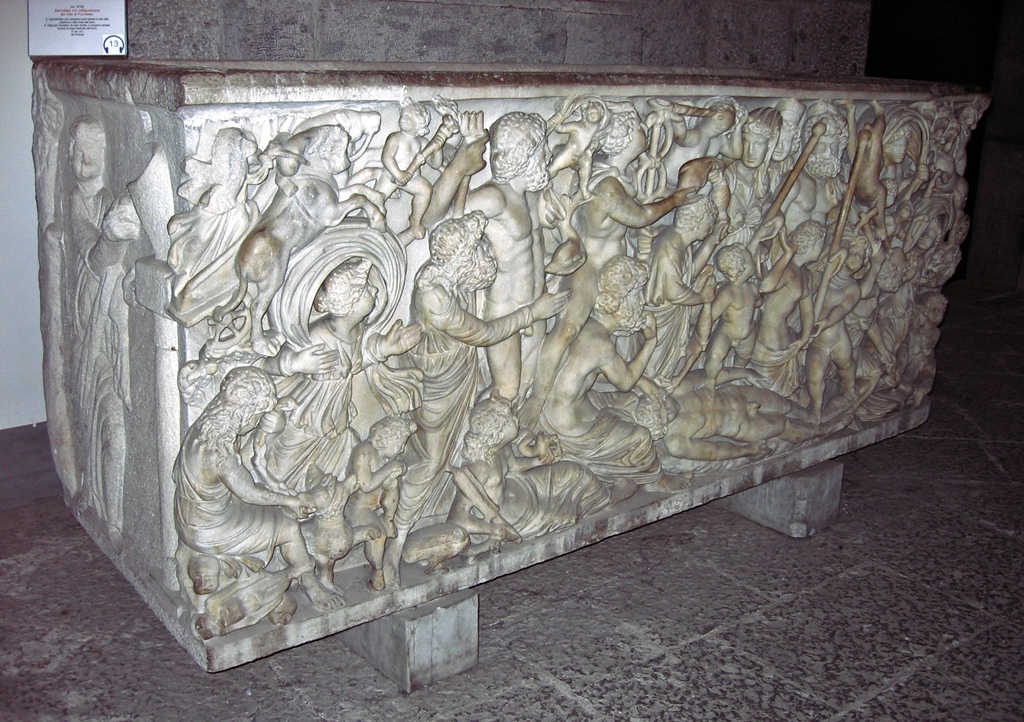
Sarcophagus

Sarcophagi (0:31)
The museum was actually within walking distance of our hotel, being one Metro stop
before Piazza Dante, so we walked back to the hotel and didn't move much more for
many hours. We had ambitious plans for the next day. These would start with a
visit to the remains of the ancient city of Herculaneum.

